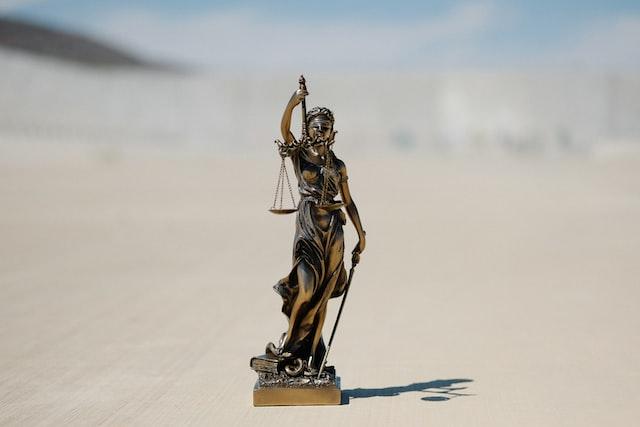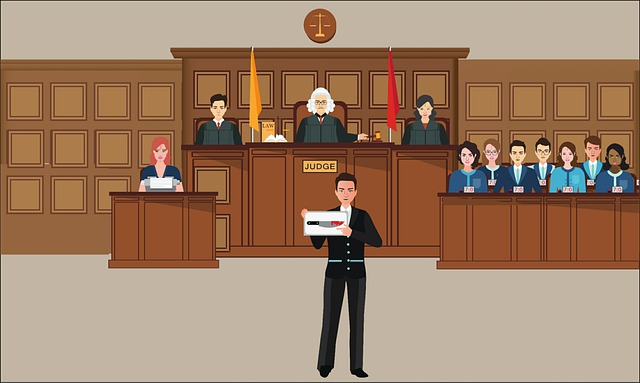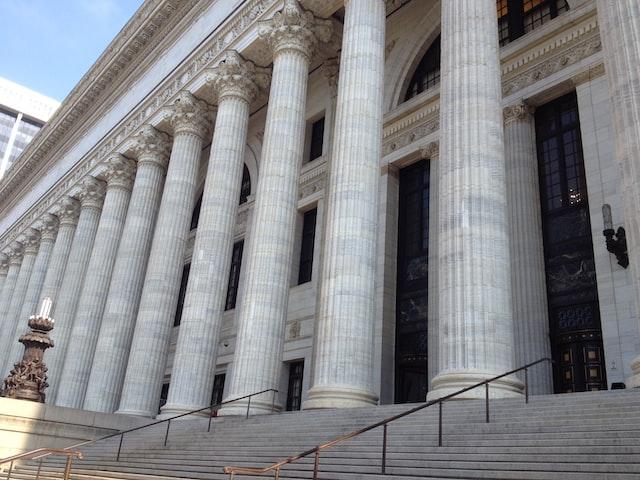What Happens After a Grand Jury Indictment?
Our product recommendations are made independently, but we may earn affiliate commissions if you use a link on this page.
A grand jury indictment is a formal accusation that a person has committed a crime. It is issued by a grand jury, a group of citizens who hear evidence presented by the prosecution and determine whether there is probable cause to believe that a crime has been committed and that the person accused is the one who committed it.
But what happens after a grand jury issues an indictment? This article will explore the process that follows a grand jury indictment and the potential outcomes for the accused.

What Happens After a Grand Jury Indictment?
1. Arraignment
After a grand jury indictment, the accused will be arraigned. This is a formal reading of the charges against the accused in court. At the arraignment, the accused will enter a plea of guilty, not guilty, or no contest.
If the accused pleads guilty, the case will proceed to sentencing. If the accused pleads not guilty, the case will proceed to trial. If the accused pleads no contest, the court will enter a conviction and proceed to sentencing. During the arraignment, the court will also set a date for the next hearing, which could be a pretrial conference, trial, or sentencing.
The accused will also be informed of their rights and the penalties they face if convicted. The accused can also request for a bail or bond to be set. The judge will also decide if the accused is eligible for bail or if he/she will be held in custody until the trial. If the accused is held in custody, the judge will also set a date for a bail hearing.
2. Pretrial Motions
If the accused pleads not guilty, the next step is for the defense and prosecution to file pretrial motions. These are legal arguments made by the defense and prosecution that are designed to persuade the judge to rule in their favor on certain issues related to the case.
For example, the defense may file a motion to suppress evidence that was obtained illegally, such as through an illegal search or seizure or a violation of the accused's rights under the Miranda warnings.
They may also file a motion for a change of venue if they believe that the accused cannot receive a fair trial in the jurisdiction where the case is being held. On the other hand, the prosecution may file a motion to introduce evidence that the defense argues is irrelevant or prejudicial, such as prior bad acts or character evidence, or a motion to try the accused as an adult if they are a minor.
During the pretrial motion hearing, the defense and prosecution will present arguments and evidence to support their positions. The judge will then review the evidence and arguments and make a ruling on each motion.
These rulings can have a significant impact on the case, as they can determine what evidence will be admissible at trial and can even lead to the dismissal of charges if the judge finds that the prosecution's case is weak or that there were constitutional violations.

3. Discovery
Discovery is the process by which the prosecution and defense exchange information about the case. During this process, the prosecution must turn over any evidence they plan to use against the accused at trial, including any physical evidence, witness statements, and police reports.
They also have to disclose any exculpatory evidence, which is evidence that may be favorable to the accused. The defense must turn over any evidence they plan to use in the accused's defense, such as witness statements, expert reports, and any other evidence that may support their defense.
This allows both sides to prepare for trial and to identify any potential weaknesses in their case. The discovery process also allows the defense to review the prosecution's case and assess the strength of their evidence, which can be used to negotiate a plea bargain or to develop their trial strategy.
The discovery process usually takes place before the trial starts, but in some cases, additional discovery may be ordered during the trial if new evidence is found. The discovery process is essential in ensuring a fair trial for the accused, as it allows both sides to be fully informed of the evidence and to build their case accordingly.
4. Plea Bargaining
Plea bargaining is a process in which the prosecution and defense negotiate a plea agreement. This is an agreement in which the accused pleads guilty to a lesser charge in exchange for a reduced sentence. Plea bargaining can save time and money for both the prosecution and defense and can provide closure for the victim. It can also avoid the uncertainty and expense of a trial.
Plea bargaining usually happens before the trial, but it can also take place during the trial, if the defense and prosecution reach an agreement. Plea bargaining can take many forms, such as a "charge bargain" where the accused agrees to plead guilty to a lesser charge, or a "sentence bargain" where the accused agrees to plead guilty in exchange for a reduced sentence.
The plea bargain agreement should be in writing and should be presented to the judge for approval. If the judge does not approve the plea bargain agreement, it will not go into effect.
Plea bargaining can be beneficial for the accused, as it allows them to avoid the risk of a harsher sentence if found guilty at trial, but it also has its drawbacks, as it means that the accused will have a criminal record and may face other consequences such as loss of certain rights or professional licenses.
It is important for the accused to understand the consequences of a plea bargain and to seek the advice of a criminal defense attorney before making any decision.

5. Trial
If the case is not resolved through plea bargaining, it will proceed to trial. At trial, both the prosecution and defense will present evidence and call witnesses to testify.
The prosecution will present its case first, calling witnesses and introducing evidence to prove the guilt of the accused beyond a reasonable doubt. The defense will then have an opportunity to cross-examine the prosecution's witnesses and to present their own witnesses and evidence.
The defense may also choose to make an opening statement and a closing argument, in which they present their version of the events and explain why the prosecution has failed to meet its burden of proof. The trial is typically held before a judge and a jury, who are responsible for determining guilt or innocence.
The jury will receive instructions from the judge on the law and will then deliberate and decide whether the accused is guilty or not guilty based on the evidence presented at trial.
The trial is an important stage in the criminal justice process, as it ensures that the accused receives a fair trial and that justice is served. The trial is also an opportunity for the accused to confront their accusers and to present their defense in front of a jury of their peers.
It is important for the accused to have an experienced criminal defense attorney who can effectively present their case, cross-examine the prosecution's witnesses, and make persuasive arguments to the jury.
6. Sentencing
If the accused is found guilty, the case will proceed to sentencing. At sentencing, the judge will consider the evidence presented at trial, any mitigating or aggravating factors, and the recommendations of the prosecution and defense.
Mitigating factors are circumstances that may reduce the accused's culpability, such as their background, remorse, or mental health. Aggravating factors, on the other hand, are circumstances that may increase the accused's culpability, such as a prior criminal record, the severity of the crime, or the impact on the victim.
The judge will also consider any applicable sentencing guidelines, which are rules and principles that provide guidance on the appropriate sentence for a particular crime. The judge will then sentence the accused to a term of imprisonment, probation, or community service.
The length of the sentence will depend on the specific crime and the circumstances of the case, and it will be within the range of minimum and maximum sentences established by law.
The judge may also impose additional penalties, such as fines, restitution to the victim, and community service. The judge may also impose conditions on the accused during probation such as drug testing, counseling or electronic monitoring. The judge may also order the accused to register as a sex offender or to surrender their passport if they are a flight risk.
Sentencing is an important stage in the criminal justice process, as it determines the punishment for the accused and serves as a deterrent to future crimes. It is important for the accused to have an experienced criminal defense attorney who can argue for a lenient sentence by highlighting mitigating factors and presenting evidence of the accused's rehabilitation.
7. Appeals
If the accused is found guilty, they have the right to appeal their conviction. An appeal is a request to a higher court to review the case and determine if there were any errors made during the trial that would warrant a new trial. The appeals process can be lengthy and may take several years to complete.
The appeal process starts with the filing of a notice of appeal, which is a document that informs the court of the accused's intention to appeal. The notice of appeal must be filed within a certain period of time, which is usually within 30 days of the conviction.
Once the notice of appeal is filed, the appellate court will review the trial record and transcripts to determine if there were any errors made during the trial that affected the outcome of the case.
Reference Legal Explanations
If you use any of the definitions, information, or data presented on Legal Explanations, please copy the link or reference below to properly credit us as the reference source. Thank you!
-
<a href="https://legal-explanations.com/blog/what-happens-after-a-grand-jury-indictment/">What Happens After a Grand Jury Indictment?</a>
-
"What Happens After a Grand Jury Indictment?". Legal Explanations. Accessed on December 15, 2024. https://legal-explanations.com/blog/what-happens-after-a-grand-jury-indictment/.
-
"What Happens After a Grand Jury Indictment?". Legal Explanations, https://legal-explanations.com/blog/what-happens-after-a-grand-jury-indictment/. Accessed 15 December, 2024
-
What Happens After a Grand Jury Indictment?. Legal Explanations. Retrieved from https://legal-explanations.com/blog/what-happens-after-a-grand-jury-indictment/.